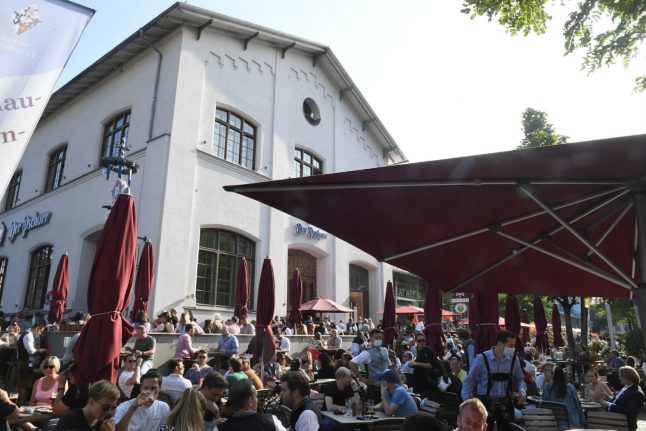Under new rules, diners and bar-goers face paying a €50 fine if they submit fake or incomplete contact details, according to DPA.
People in Germany have to give their contact details if they are in a restaurant, cafe or similar establishment so that if there is an outbreak, they can be contacted and told to self-isolate and get tested.
Chancellor Angela Merkel and the state premiers of Germany's 16 states have been discussing how to deal with coronavirus in the colder months.
In view of the continuing high number of Covid-19 cases, it has been decided that no further reopening steps on public life are to be allowed at the moment.
Instead, rules will be tightened, such as the fine for giving false contact details. Merkel and the state leaders have been discussing a host of further measures.
READ ALSO: These are Germany's proposed new rules for coronavirus
More public awareness
In a bid to step up the fight against Covid-19 and increase awareness among the German public, two more letters are to be added to the “AHA” (which stands for Abstand halten, Hygiene und Alltagsmaske) formula that Germany advises for keeping distance, hygiene and everyday masks.
The two extra letters are “C” to stand for 'Corona Warning App' and “L” to stand for “Lüften” or ventilation.
“Regular airing in all private and public rooms can considerably reduce the risk of infection,” says the draft proposals.
So far, according to DPA information, there have not been any major differences of opinion during the meeting. However, clashes are likely to arise when it comes to setting the maximum numbers of participants in celebrations in private and public spaces.



 Please whitelist us to continue reading.
Please whitelist us to continue reading.
There should be no group gatherings AT ALL. 25 people is too much. Needs to be small family gatherings only or meeting one or two friends. Not 20.
Agreed, but certain parts of the Community feel that it is more important to have huge numbers of guests than just get married, for instance.
Fine them…. How? It seems the person getting fined would be the false one in the false information.
Test